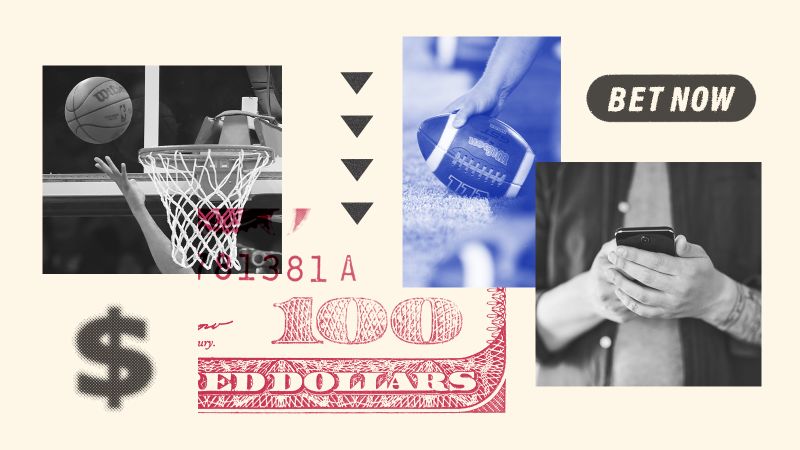CNN
—
In August 2019, Saul Malek realized he’d hit rock bottom.
His girlfriend had broken up with him, friendships had gone south, and he had money problems.
“I noticed all my memories were really gambling related,” Malek explains to CNN Sport.
“If I went out with my girlfriend and some friends, I’d tell her at the end of the night, ‘This is a great night because this bet won, and I was up this amount.’”
In a last-ditch effort to resurrect his relationship with his girlfriend, Malek says he told his Gamblers Anonymous mentor that he wouldn’t place a bet for six months. Almost five years later, Malek still hasn’t bet.
The billions of dollars that were bet on this year’s Super Bowl, the millions that will be wagered on Saturday’s Kentucky Derby and stories like Malek’s have brought into sharp focus the US’ complicated relationship with sports gambling.
It was in his college sophomore year that Malek says he was introduced to an illegal bookkeeper.
“It was definitely murky in terms of the legality and legitimacy of all of it, but I didn’t really care,” he said.
“I enjoyed betting with the bookies because I liked knowing that I was winning against a real person, that you know I was better than them.”
Malek vividly remembers his first $10 win.
“It was a total warping of my mind,” said Malek. “I know what I’m doing. This is easy, this is great.”
However, $10 bets became $100 wages, which quickly morphed into stakes involving thousands of dollars.
“When I really started losing and chasing the losses, I had an awareness that it was uncomfortable,” admitted Malek.
“But I think I was in such a mode of trying to solve everything that I didn’t see it as really much of a problem.”
It wasn’t until his parents noticed “sketchy people messaging him,” and his school grades becoming an issue that Malek, who is now a public speaker on gambling awareness, knew he was in too deep.
It was in 2018 that the US Supreme Court struck down a 1992 federal law, which had prohibited most states from allowing sports betting.
Fast forward to 2024 and the gambling industry is engrained in US sports culture with leagues, franchises, players and networks now partnering with betting organizations.
Nevada was the lone state able to provide sports betting in 2018, but it’s now legal in 38 states and the District of Columbia, with active legislation surrounding sports betting in a further six states.
In February, when the Super Bowl was staged, Americans bet $10.49 billion on sports, a 24.8% year-over-year increase, according to the American Gaming Association’s (AGA) gaming revenue tracker.
Ahead of the Super Bowl, the AGA was predicting a record 67.8 million American adults (26%) would bet an estimated $23.1 billion on the event, a 35% increase from 2023.
And, overall, nearly $120 billion in legal bets were made last year.
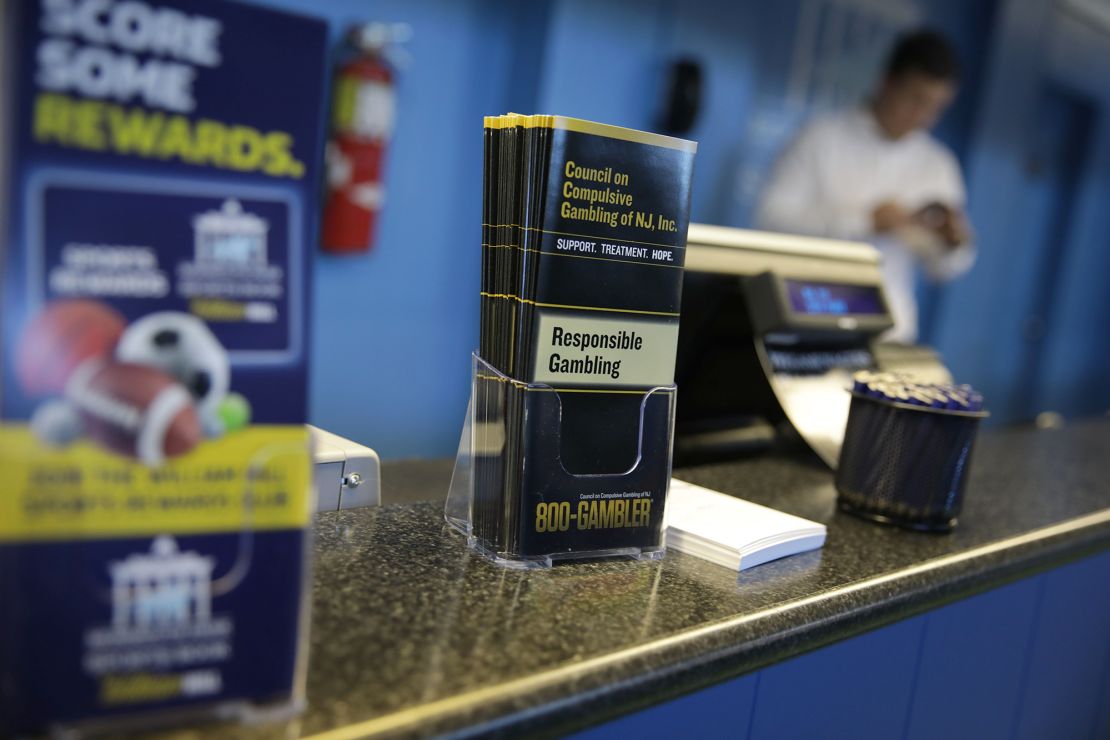
“In America, as long as there have been sports to bet on, people have been betting on sports,” AGA senior vice president Joe Maloney told CNN Sport in an interview.
“Democrats and Republicans, if there’s one thing that they could agree on, illegal betting was already happening.”
Maloney says the 2018 decision was an opportunity to bring betters into the legal marketplace – and for politicians to capture tax revenue.
In 2023, more than $11 billion in state taxes were brought into state coffers.
According to the US Census, New York state is by far the leader in taxes collected.
“There was this rush by state government, quite frankly, to capitalize on gambling revenue and the gambling industry was happy to play along,” Keith Whyte, executive director of the National Council on Problem Gambling (NCPG), told CNN Sport.
It’s estimated that 2.5 million adults in the US “meet the criteria for a severe gambling problem in a given year,” according to the NCPG.
Maloney maintains that one of the advantages of legalized sports gambling is the measures that are put in place to help those who suffer with gambling addictions.
“The illegal market has flourished for probably four to five decades in this country … and there was never any problem gambling resources at any serious level to support those that are demonstrating problematic behavior,” Maloney says.
“We’re really proud of the fact that … there’s more money being devoted to problem gambling in this country than there ever has been.”
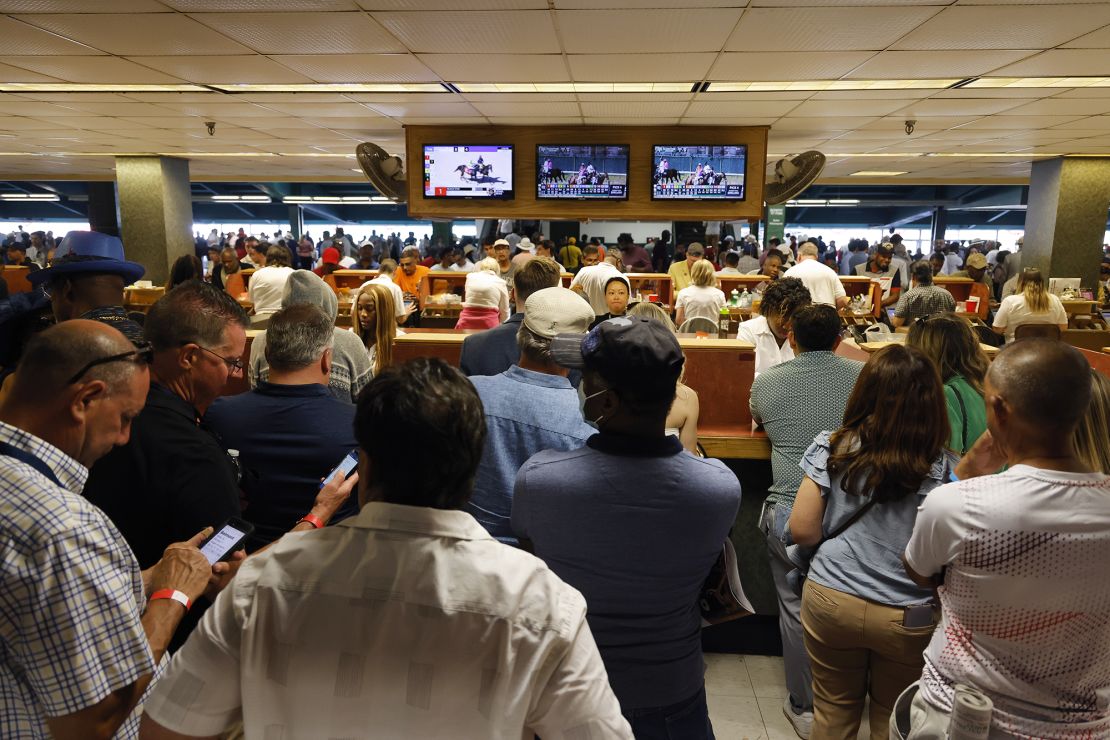
Whyte says he is less convinced.
“We’ve seen no evidence of that whatsoever,” says Whyte when asked about legalized sports gambling helping curb gambling addiction. “We think the risk has gone up by about 30%.”
“I’m in the District of Columbia right now. The mayor recently cut every single penny of public funding to prevent and treat gambling problems.
So right where the AGA and the National Council for Problem Gambling is located – the nation’s capital – they abolished all public funds for problem gambling,” adds Whyte.
From LeBron James’ NFL partnership with DraftKings to ESPN launching an official sportsbook, it is becoming increasingly hard to watch sport without gambling being part of the viewing experience.
A 2023 NCAA study surveyed young adults aged 18-22. It says that among those who had seen sports gambling advertisements, 52.8% said it made them more likely to want to gamble.
Among higher risk gamblers as many as 80% say the ads they have seen make them more likely to gamble.
Whyte says that these ads aren’t too much of a concern if you’re not in the higher risk groups but the connection among those who are is concerning.
Maloney counters that advertising is crucial in taking gamblers from illegal to legal markets.
“Advertising is very important upon markets being opened legally and regulated to communicate to betters that there is this opportunity to now bet in the legal market,” said Maloney.
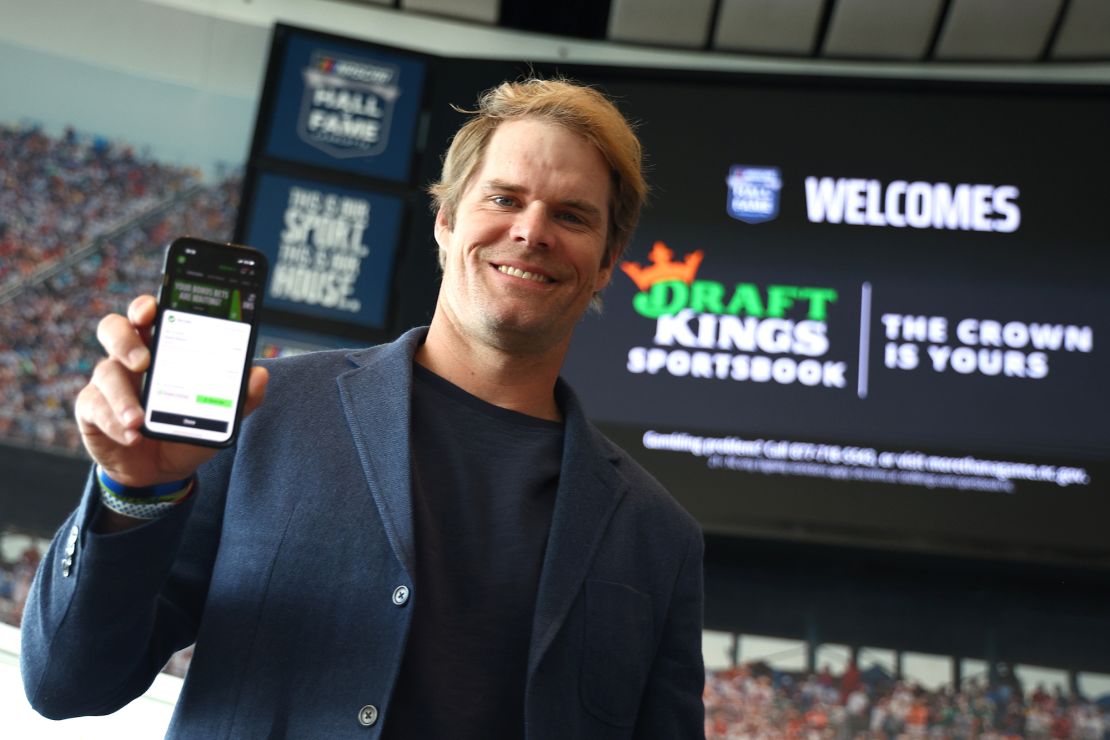
The rise of advertisements and promotions is something that concerns NBA commissioner Adam Silver.
“I live in the New York market. It’s constant in terms of promotions for people to bet on sports,” said Silver recently.
“I worry also about young people. It’s, of course, illegal for young people to bet on sports,” added the commissioner.
Ramon Zelaya, the moderator of Reddit’s problem gambling forum, concurs.
“The explosion of sports betting has captured the attention and engagement of younger gamblers. Folks starting in their teens,” Zelaya told the NCPG.
“I’ve had 16-year-olds post on the subreddit. I have noticed that the college age demographic tends to gravitate towards sports betting, online poker, trading cryptocurrency, that sort of thing.”
Despite Silver’s hand-wringing over the proliferation of sports betting ads, the NBA in March said it had joined up with Sportradar to provide NBA League Pass users with the chance to look at live odds throughout games.
“Where sports betting is legal, users can opt-in to have the convenience of viewing and selecting bets directly on NBA League Pass. When ready to place a bet, they are directed to FanDuel or DraftKings, the NBA’s official betting partners, through a seamlessly embedded link,” the Sportradar statement read.
Malek believes that this lack of friction is dangerous.
“Having it right there, really made it just so convenient that I was able to just click a button,” he expained.

Maloney, however, points to the opportunities technological innovation offers the betting industry and its customers.
“I think the pace of innovation right now, particularly as it relates to fan engagement and betting, and in play betting and live betting will continue to increase,” said Maloney.
“I believe that the embrace with leagues, teams and industry partners will continue,” he added.
Whyte’s concern is that most sports bettors “when they get deep into in play [betting]” have no idea of the true odds and that it’s nigh impossible to calculate the true odds within the required 30 seconds you need to place an in-play bet.
The betting industry also points to its continued emphasis on “responsible gambling,” saying three quarters of what it describes as “traditional Super Bowl bettors” report seeing a responsible gambling message in the last year, up from 71% in 2023.
Recently the NBA banned Toronto Raptors player Jontay Porter from the league after an investigation found that the 24-year-old had violated betting rules, the league said.
The NBA said its investigation found that Porter had “violated league rules by disclosing confidential information to sports bettors, limiting his own participation in one or more games for betting purposes, and betting on NBA games.”
With the rise of sports gambling, this could become more common and it’s something that NBA commissioner Silver is concerned by.
“It’s a cardinal sin, what he’s accused of, in the NBA, and the ultimate extreme option I have is to ban him from the game,” said Silver.
“There’s nothing more serious, I think, around this league when it comes to gambling and betting on our games, and that is a direct player involvement,” added Silver.
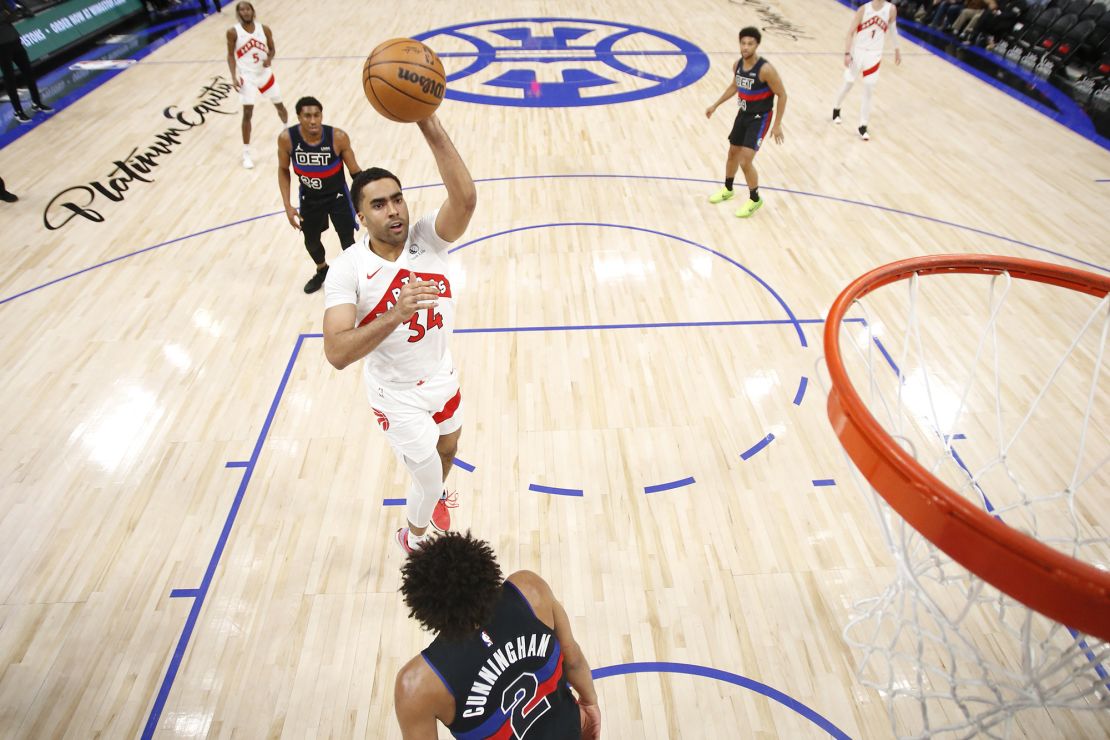
Porter didn’t respond to CNN’s request for comment when his ban was announced.
In late March, the NBA said it was “looking into” anomalies involving prop bets pertaining to Porter. Reportedly there were two specific games in which DraftKings Sportsbook flagged prop bets involving Porter in its daily betting insights.
A DraftKings spokesperson told CNN after Porter was banned: “We have no comment on this story. In general, it is important to note that one of the many benefits of legal and regulated sports betting is that sports betting operators identify and report suspicious activity and the integrity of sport is therefore protected in a manner that does not exist in the illegal market.”

